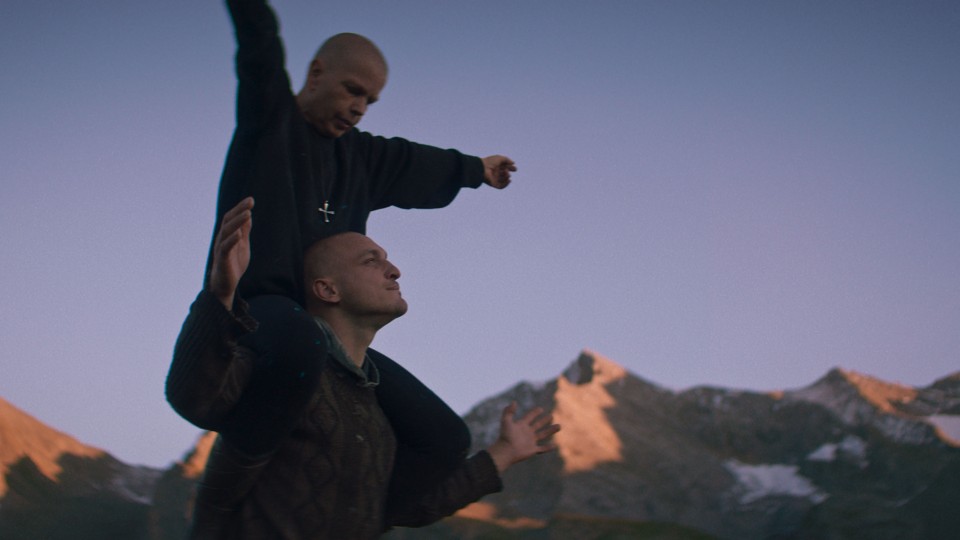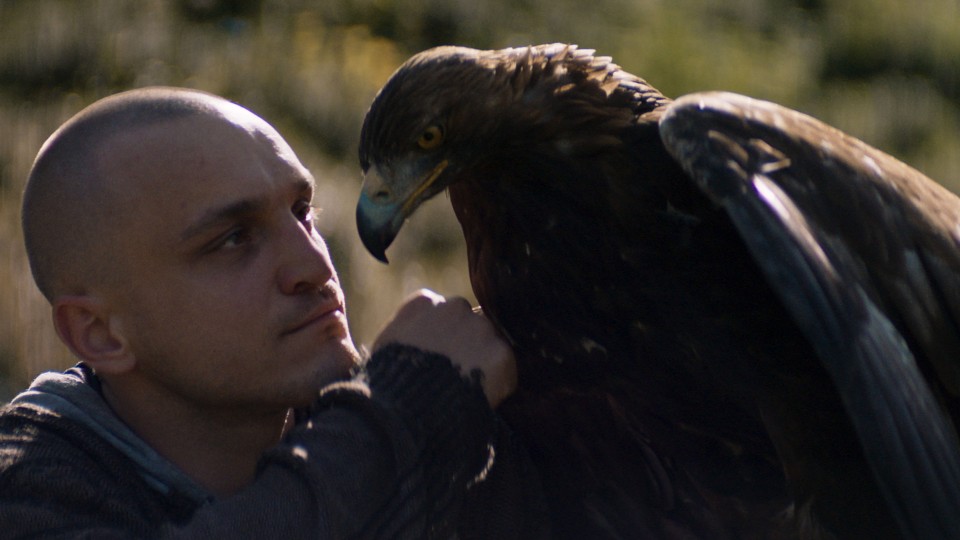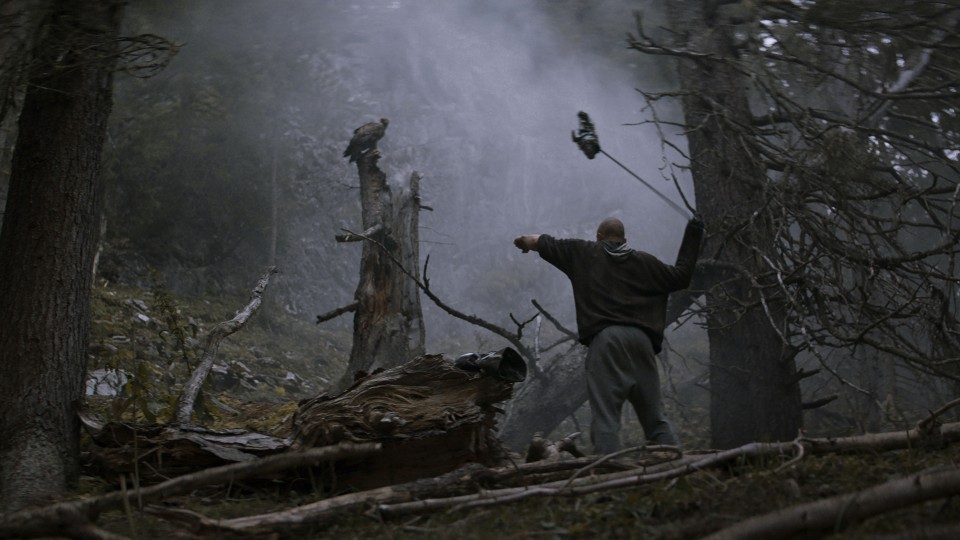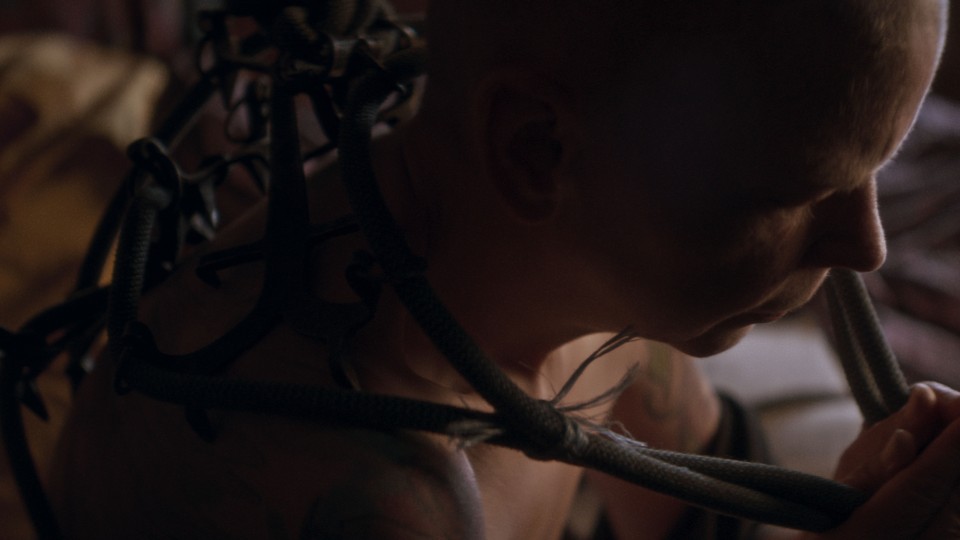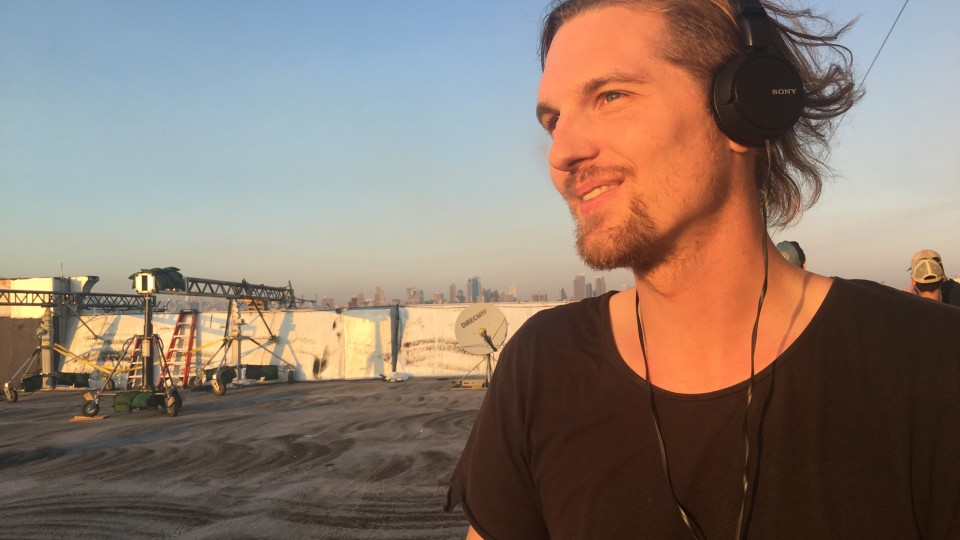Johannes lives with his deeply religious mother in an Alpine hut surrounded by nature, close to God but far from the despised
people down in the valley. A young man with the mind of a child, he can barely master the spoken word and is unconditionally
tied to his mother, who has attempted to protect him by defining the world in simple terms as consisting of God and the forces
of evil. Peter Brunner is a filmmaker who explores in images the rifts within his characters. In Luzifer he brings about a collision between fanaticism and freedom which is a depiction of blind faith and its misunderstandings.
Luzifer, featuring Franz Rogowski and Susanne Jensen in the main roles, has been made by Ulrich Seidl Filmproduktion.
There is a reference at the beginning of the film, and in the synopsis, to the fact that the story of LUZIFER is inspired
by true events. Which elements of the true story provided you with the impulse to write the screenplay?
PETER BRUNNER: I came across the story while I was conducting research for my first feature film, My Blind Heart. A man suffering from cognitive impairment attempted to rescue his sick mother, who was extremely devout, from the devil.
To do this he adopted the role of his mother, employing the rituals of faith he had learned from her. Rescuing her becomes
a fixed idea, like perfume for Jean-Baptiste Grenouille in Patrick Süskind’s novel. This true story triggered images and questions
in me over several years. Why would anybody sacrifice a life under the auspices of his faith? How could children become murderers?
What do we teach our children? I’m interested in the mechanisms within a microcosm which can lead to fanaticism and ideologies,
to terrorist attacks or to the fate of Edmund in the film Germany Year Zero. The reversal of roles between mother and son, a love which is coloured red, meaning of totally unconditional nature and also
the path out of fanaticism.
For the characters of Maria and Johannes were you able to take much inspiration from the actual sources, or did you research
intensely into religious fanaticism, and the concept of evil and the devil, in order to lend a contemporary component to this
concept, which appears to be anchored in another age?
PETER BRUNNER: The historical story was the point of departure, after which I met a wide range of very devout people who allowed me to participate
in their relationship to their faith. Those experiences were extremely intimate, moving and disturbing. Ever since childhood
I’ve been puzzled by the whole concept of religion and how it changed the lives of people around me. But during the research
I attended a lot of baptisms in charismatic splinter groups of the Pentecostal movement. I observed the teaching of charisma
and speaking in tongues, or ritual exsufflation. Johannes’ approach to faith is different to his mother’s. Whereas his mother
takes answers from religion, in order to make the burden of her life more bearable, Johannes only finds mysteries. It’s a
spirituality which accompanies him like an antagonist. Like my other works, this film is probably most accessible through
the characters, their relationships and their actions. So the concept of the devil in the film is only a tool for the mother,
a story she tells in order to protect her disadvantaged son.
Luzifer unfolds entirely in nature, far from civilisation. From the first shot the images of nature are coupled with a disruptive
soundtrack. Nature here isn’t a place to feel at ease. Why is it important to you to generate from the beginning a feeling
of irritation here?
PETER BRUNNER: I attempt to be loyal to a fundamental emotion, and in this case nature is not a romantic source of life; instead, it’s a
memory and prophecy of our history. On the one hand nature is indifferent to us, while on the other hand we are part of it:
it’s in us. We all know that since the virus. These voices and sounds within us are part of the landscape in Luzifer. I attempt to crystallise in film portraits the people and the world I perceive. Irritation is a question of one’s own point
of reference and background. I am irritated by a claim of naturalism in film. I look for contradictions at all levels; that’s
what film is for.
Johannes has a very close relationship with birds, and they exist in a permanent state of tension with the technical flying
objects which are initially isolated intruders but gradually become invaders. Are the flying creatures and objects symbolic
of a prevailing transformation and the idea that even in this distant, remote region there is no escape from the greed of
capitalism?
PETER BRUNNER: In the three years we spent searching for locations in the Alps it was more silent during the pandemic than ever before. I
am afraid that as human beings we are annihilating ourselves. We are reducing what we want to know about humanity to that
which is not at all human. We are creating a world where our interest is in the foreground, a world which we dominate with
algorithms, digitalisation and the stock market – but then who are we as people? We can only survive in a thin membrane between
rocks and clouds. Our collective ruthless exploitation doesn’t spare our environment or ourselves. Capitalism is only a symptom
of a completely mistaken way of thinking about ourselves and of dealing with ourselves and our planet. We would need not only
human rights but also rights for river systems, mountain chains and animal species.
Luzifer is very strongly concerned with representing links – to nature, to God, to a father figure, between mother and son, to animals
– in emotional terms. Was the exploration of these links, and their presentation on film, the greatest challenge of the project?
PETER BRUNNER: My main interest was the crystallisation of the emotions and ideas that moved me. One of the main elements to be transmitted
was the relationship between Johannes and his mother. It was our aim to bring to life a plausible mosaic of a relationship
that would make the human contradictions of the true story emotionally accessible for an audience. The two of them are existential
life supports and life focuses for each other. In the film they survive in isolation at an altitude of 2400 metres. There
too it took time and patience to construct a genuine relationship. The relationship to the people and places I choose for
our film, and our friendship, always changes the story and the film itself as well. The landscape, the animals and their locations,
and the way our DoP Peter Flinckenberg filmed them was in turn a result of this crystallisation into accurate images. In the
final analysis the point is something abstract: the expression of an inner condition.
You have two extraordinary leading protagonists. Susanne Jensen is not a professional actress, but she’s a fascinating personality
who brought a great deal to the role in terms of her external appearance and also her personal story. How did you come to
work with her?
PETER BRUNNER: Susanne Jensen is a pastor in the Evangelical Lutheran Nordkirche, an abuse survivor, an artist and an exceptionable personality.
I spent a very long time searching for a person who could make the complex emotional world of this unconventional mother figure
genuine, someone who was able and willing to give true depth to this true story. At the same time I didn’t want anybody to
act the faith of this woman; instead I wanted to find someone who has a faith as strong as Joan of Arc’s. So much in the craft
of making films is about lying, but every chance of truthfulness in the right place can make an enormous difference. Despite
all the resistance in her private and professional life, Susanne lived for being this mother. As a result of her difficult
past the preparation and the filming was a hugely challenging process for her and for the team. Susanne’s courage and strength
to confront her past in this role was one of the most moving experiences during filming.
Franz Rogowski plays the son, who can barely master the spoken word and is very underdeveloped mentally. He has an eagle,
and there is an extremely close relationship between them. What challenges did he confront in preparing for this role? How
did you prepare for filming with the two leading actors?
PETER BRUNNER: Apart from Franz Rogowski, all the cast were non-professionals. We lived together in the world of nature, de-horning and castrating
cattle or hunting with the eagle. Franz worked for over a year with the birds of prey, chopping down trees with an axe and
climbing rock faces. Johannes, the character that Franz plays, is a child in the body of a man. Like the main protagonists
in To the Night and My Blind Heart, Johannes in Luzifer is an extremely sensitive man who doesn’t correspond to masculine role models. He doesn’t fit in there. He is the last and
the first who speaks his language, someone who is extinct while still alive, a contradiction. Franz Rogowski accepted an enormous
risk with wild animals, non-professional actors and my specific intention of working while exposed to nature; he threw himself
into it and lived for the story and for our aims.
The location seems to have been demanding in many ways, from the imposing harshness of the mountains to more gentle countryside
with moors, pastures and forests. What did it mean for the production work, filming at that altitude and through the seasons?
PETER BRUNNER: Searching for locations took over three years. The task of finding a hermetic high moor in a natural condition at that altitude
which permitted us to film through 360° and meet our technical production requirements was a real challenge. Our main location
was at an altitude of 2400 metres. To capture the rust colours of the vegetation and the mist, Peter Flinckenberg and I wanted
to film in late autumn, which meant we had to reckon with snow. Due to the unpredictable weather conditions, filming was hugely
unsettled. The planning changed constantly. It was a balancing act for everybody. The Luzifer team and Ulrich Seidl Filmproduktion made it possible to cope with this constant process of adaptation and reaction. Filming
when exposed to the elements gives you unique moments, but it comes at a price. I’m very grateful for the fact that I had
such a courageous team that I could rely on. Snowstorms, pneumonia and births, but as a result we experienced unique moments
in nature as a collective.
Interview: Karin Schiefer
July 2021
Translation: Charles Osborne

